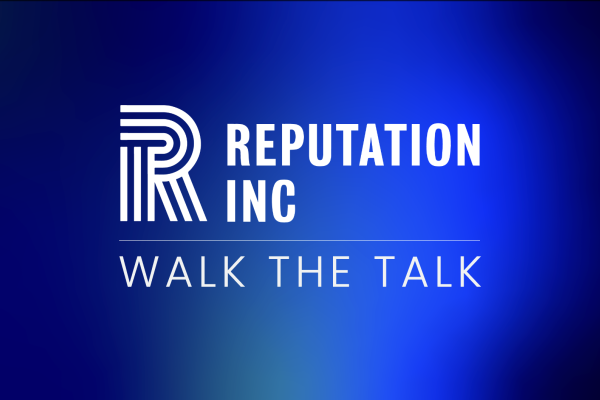
Irish Retail Puts Reputation at Heart of New Strategy
It is immensely encouraging that as part of this ambitious plan, the sector has put reputation at the heart of the strategy. Indeed, reputation has been identified as a key driver for future growth and confidence and an indispensable component of a thriving Irish retail sector that makes a positive impact on customers, employees, the economy and local communities.

In both Ireland and the UK, retail is a critical sector of the economy as is evident by the sheer number of people employed, the contribution it makes to the exchequer as well as the role it plays in supporting and generating vibrant and healthy cities, towns and local communities.
Few sectors are as dynamic as retail and in recent years it has continued to undergo transformational changes, which include shifting consumer behaviours, increasing customer expectations, accelerating technology innovation, increasing regulation, as well as working with a more volatile consumer sentiment and a highly competitive trading environment. This has increasingly led to local retailers competing with global brands and Internet-only companies.
At the same time, the sector is highly exposed to economic shifts. When the economy takes a hit retail is often first to suffer and last to recover. As a case in point, UK retail sales have slowed significantly in recent months as inflation has started eroding shoppers’ disposable incomes. In Ireland, despite a sustained recovery, the retail sector remains 13% below pre-crisis levels.
As it works to adapt to economic challenges and unprecedented change, the retail sector has also been faced with a growing range of reputation issues and has been at the cusp of evolving and growing stakeholder expectations with regards to behaviours, governance and business practices.
The reputation issues are as diverse as the sector itself and have in recent years included:
1. Product transparency, sourcing, offshore manufacturing and working conditions
2. Product contamination
3. Social and public health issues such as obesity and alcohol misuse
4. Environment, planning and urban development
5. Product promotions
6. Employment rights, change management and industrial relations
7. Diversity, human rights and inclusion
8. Customer service and consumer rights
9. Corporate governance

Most will be well aware of a number of high-profile governance failures that have seriously impacted the reputations of well-known brands and businesses and by extension raised considerable questions and issues for the wider retail sector.
Too often however, reputation is explored and approached through the lens of a crisis. Focusing solely on reputational risks and crises can skew our perspective and may mean we miss out on understanding and acting on reputation opportunities.
The (often justified) focus on risks and crises also overshadows the stellar work of many leading retailers that have developed powerful reputation strategies and plans, aimed at “creating shared value” and leveraging the power of a strong and sustainable reputation.
Such strategies increasingly focus on safeguarding a company’s reputation through good governance which allows it to make better choices and business decisions that are in the best interests of the organisation in the long run.
These businesses understand that retail brands and reputation will in the future be increasingly managed as one and that this will be a key enabler in driving business strategy and success.
In managing their reputations and developing a strong business case, leading retailers – similar to companies in other sectors - ensure they have a strong foundation of measurement in place to hold their strategies accountable but also to enable a focus on the most important stakeholder dialogues and opportunities.

Building a strong, sustainable reputation is a journey which takes time, resources, dedication and long-term commitment, to ensure good behaviours and change are successfully embedded.
In embarking on this journey leading companies increasingly empower their boards and management teams to take on the role of reputation leaders, which requires a considerable skillset.
By building a robust, sustainable reputation, a key strategic imperative in its ambitious new strategy, the Irish retail sector has shown strong leadership and sets an example for other sectors and companies to follow.
ReputationInc supported the development of Retail Ireland’s report, Shaping the Future of Irish Retail – a strategy for Irish retail 2017-2020, and is available to view Retail Ireland - IBEC.



